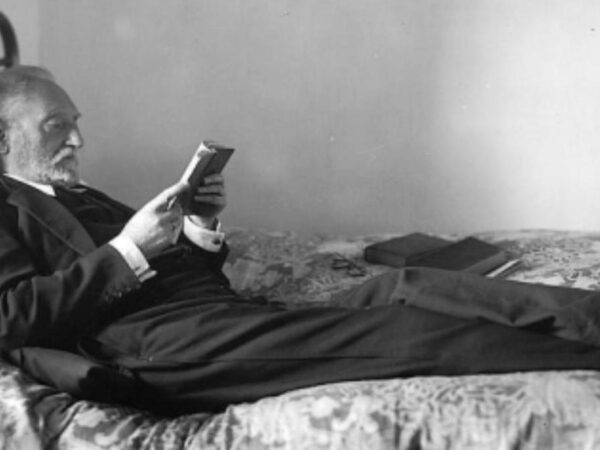Boris Vian: books and literature. “I will spit on your grave”

Contents
Boris Vian wrote “I will spit on your grave” (J’irai cracher sur vos tombes) in 1947, and became a bestseller. Today it is still a hard and disturbing novel, perhaps not as much as it was at the time, although it was enough for the French Poster for Action Sociale et Morale (a French federation of local associations that works for the respect for what he considers “good moral”, created in 1883 by Tommy Fallot, who supports the abolition of prostitution and opposes pornography, alcohol and gambling), and that he already punishes Henry Miller with censorship , will denounce it.
Vian was judged for translating “objectionable material”, since it was supposed to be just that: the translator of the literary work, and sentenced to the payment of 100,000 francs, until in the summer of 1950 the French government banned new book sales . Until then it is estimated that the book had sold more than 500,000 copies.
Vian would not be the only one, nor the last to be denounced for going against public morals. Recall the case of the poet Baudelaire, who also suffered his own, and its editor, for ‘The flowers of Evil’.
In just two weeks, from August 5 to 23, 1946, Boris Vian turned himself into writing by copying the mode and manner of American black novels
Be that as it may, the ban felt phenomenal to “I will spit on your grave”, staying alive in memory until today and reediting itself again and again increasing its sales and its legend.
Why did Boris Vian write “I will spit on your grave”?
By the end of 1946, Boris Vian already knew that he would write a novel with that background and that form. It was intended to be the first work published by the publishing label: Editions du Scorpions, by a good friend, Jean d’Halluin, who proposes to Vian to write a novel in the style of Tropic of Cancer, of the aforementioned Henry Miller. In just two weeks, from August 5 to 23, 1946, Boris Vian gave himself to writing copying the mode and ways of American black novels, with “4 erotic scenes that prepare the world of tomorrow and paves the way for the true revolution ”, according to the words of the writer.
But Vian did not sign the book as such if the supposed translation of the book was not, since it was supposed to “Spit on your grave” in Spanish, J’irai cracher sur vos tombes, in French or I Shall Spit on Your Graves, in its version English; It was the work of a supposed young black writer, named Vernon Sullivan, whose work was banned in the United States, his native country. None of that was true.
As if that were not enough, the controversy of the novel about the subject matter and about which I will now make reference, literature and life were crossed since a man, who strangled his lover, left an open copy of the book on the table at night with one of the passages underlined and framed in a circle: “Again I felt that strange sensation that ran down my back when my hand closed over his throat and I couldn’t contain myself; I arrive; it was so strong that I let it go… ”The obtuse glances saw a relationship between both acts, that of fiction and that of reality, framing the second as a product of the induction of crime, as if the unleashed lover was not going to end his lover’s life if it hadn’t been for reading Vian’s book.
At first, the novel was going to be titled “I will dance on your grave”, but Michelle Léglise, Vian’s first wife, was more seduced by the idea of ”spitting” than “dancing” and was soon convinced to convince Boris.
The inspiration of the novel was the product of an article published in the American weekly Collier’s where it was explained that about two million black Americans “would have crossed the color line”, which would allow them to obtain the status of whites by administrative decree. It was estimated that in the mid-twentieth century between five and eight million whites had black blood.
Synopsis: “I will spit on your grave”
The plot of “I will spit on your grave” focuses on Lee Anderson, his protagonist, a white skinned, but genetically black, who wants to avenge the murder of one of his black brothers who died lynched and hung for having fallen in love with a woman white; and the beating received by another, by a heartless group of racists. Anderson’s plan includes rapes and physical violence without a brake, and his victims are two young sisters of a good family, with whom he befriends – along with a group of whites, alcohol and party friends, also young – while working in a bookstore.
Boris Vian’s little revenge
That same year, Vian published three more books, following a similar line, one of them keeps a curious anecdote: The Dead All Have the Same Skin Color, a novel with parallels with I will spit … by having as a protagonist a white with black genetics . Again, more rapes and murders. In this book Vian chose to name his protagonist with the same name as the head of the Cartel d’Action Sociale et Morale: Daniel Parker.
“Are these guys supposed to be Americans? And crap! ” Shortly thereafter, he died a victim of cardiac arrest.
As practically everyone knows I will spit … I kept a mockery of fate for Boris Vian.
When the film was released about his novel, in 1959, Vian died in the movie theater where it premiered. He was not happy with the result of adaptation to the cinema. And if you read the novel and watch the movie, you will realize the many dissimilarities. In fact, the very impressive end of the book has little to do with that of the film, much more poetic.
Shortly after the start of the screening, Vian said: “Are these guys supposed to be Americans? And crap! ” Shortly thereafter, he died a victim of cardiac arrest.
It would not be until after his death when his books saw reprints. The fact of censorship did not come at all well in life. Now, after a while, Boris Vian is still alive, and perhaps spitting and dancing on those who censured him in the name of good manners.






